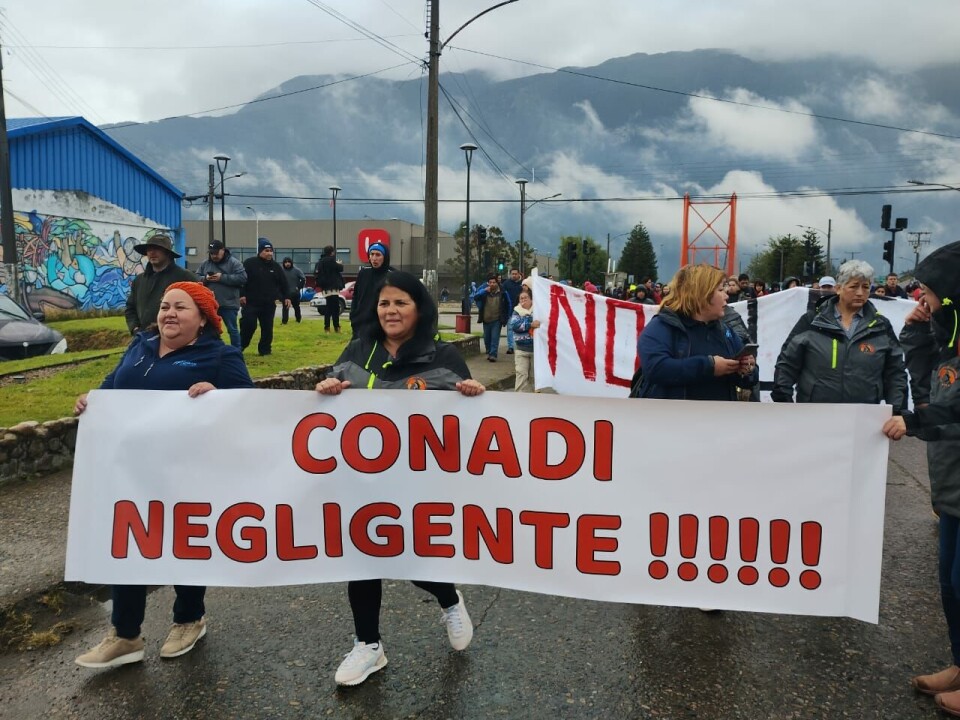
300 fish farms and 5,000 jobs in the balance as commission votes on indigenous rights
Chile could lose 25% of salmon farming capacity
A call not to cut off and suffocate activities such as salmon farming in the Aysén Region of Chile has been made by associations and parliamentarians ahead of a vote today that will determine a request from two indigenous communities totalling just 38 people for control of more than 621,000 hectares of sea.
The impending vote by Chile’s Coastal Edge Use Commission (Comisión Regional de Uso del Borde Costero, or CRUBC) has already sparked protests from workers worried that they will lose their jobs, with another demonstration due today.
Salmon farming unions have said that if the indigenous communities get what they ask, around 300 aquaculture concessions could be lost, which equates to 45% of those in the Aysén Region and 25% of Chile’s productive capacity in salmon farming, putting more than 5,000 direct jobs at risk.
ECMPO
Control of the Cisnes and Islas Huichas sea areas have been requested as part of the Coastal Maritime Spaces of Native Peoples (Espacios Costeros Marítimos de Pueblos Originarios, or ECMPO) process under the Lafkenche Law that grants limited resource access rights to all coastal indigenous communities, in designated portions of Chile’s coastal areas for traditional uses, including harvesting practices.
The industry groups AgrupAysén, Acuiprov, and development corporation CorpAysén, together with a wide spectrum of unions and guilds in the region and its surroundings, have called on the entire non-indigenous community to join a protest march from Puerto Aysén to Coyhaique today.
Hernán Rebolledo, president of CorpAysén, has urged members of the CRUBC to vote in a fair and rational manner for the coexistence of productive activities such as salmon farming “in a magnificent territory such as the Aysén Region”.
Imbalance of interests
Ricardo Mewes, president of business organisation CPC, said in a letter to government ministers that “the Lafkenche Law has become an imbalance of interests and positions, although its original spirit is to recognise and respect the rights of indigenous peoples”.
He added: “What could happen is that groups of a few people would access rights over substantial portions of the maritime territory (amounting to more than a thousand times the size of a typical ECMPO), affecting other legitimate interests.”
Mewes warned that “the great social conflict that continues to be seen is worrying, generating a negative environment, which is setting bad precedents for the region and for the entire country”. When something so relevant for development and coexistence in Aysén is about to be defined, “it is essential to carry out a process of in-depth dialogue with all the actors that cohabit the coastline, and fulfil CRUBC’s mandate to work on participatory territorial planning”.
Farming 'can co-exist'
Gerardo Balbontín, general manager of salmon farmer Blumar, said: “We view this decision with concern and uncertainty, since it could affect up to 70% of our concessions in the Aysén Region, where we work with 250 people, strengthening the development local SMEs and linked to the communities, with whom we actively promote sustainability projects.
“We are convinced that salmon farming can coexist with all the uses of the coastal and maritime edge, which belongs to all Chileans, especially the Ayseninos, and not just a group of 38 people.”
The CRUBC is expected to make a decision after 3pm (6pm GMT).






















































